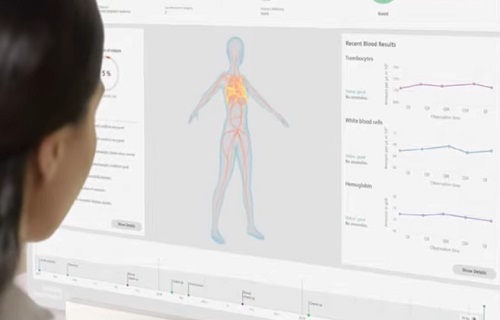What is Clozapine?
Clozapine is an antipsychotic medication used to treat schizophrenia. Especially in people who don’t respond to other antipsychotic drugs. It helps control symptoms like hallucinations and delusions. Clozapine is usually prescribed when other medications have been ineffective but it requires regular blood tests because it can lead to serious side effects; such a decrease in white blood cells. Despite these risks it is often very effective for managing severe cases of schizophrenia.
Statistics About Clozapine
Effectiveness and Usage Of Clozapine
- Clozapine is considered the most effective antipsychotic for people with treatment-resistant schizophrenia.
- 60-70% of patients with schizophrenia who have not responded to other medications show improvement with clozapine.
- About 30% of people with schizophrenia are considered to have treatment resistant symptoms and may be prescribed clozapine.
Monitoring and Compliance Of Clozapine
- Blood monitoring: Patients taking clozapine require regular blood tests. 70% of patients adhere to these tests but missing tests may cause to serious health risks.
- Clozapine is prescribed when at least two other antipsychotic drugs have failed and it is considered when patients conditions severely affect their quality of life.
Global Usage Of Clozapine
- Clozapine use varies globally with its highest usage seen in countries like the United States and Australia. But it remains underused in low and middle income countries because of the need for frequent blood tests and the associated costs.
- Clozapine is prescribed to about 30% of people with treatment resistant schizophrenia in the United States.
Costs Of Clozapine
- Cost of clozapine is often higher than other antipsychotics because off the blood monitoring requirements but the benefits in treatment resistant cases can justify this cost.
- In the United States; annual treatment with clozapine can cost about $10,000-$15,000 per patient when including blood tests and medical visits.
Outcomes and Benefits Of Clozapine
- Reduction in hospitalizations: Studies show that about 50% of patients on clozapine experience fewer hospitalizations after starting treatment so it can reduce healthcare costs.
- Improved quality of life: Around 60% of patients report improved quality of life after starting clozapine particularly in managing severe symptoms like delusions and hallucinations.

What Are The Side Effects Of Clozapine?
Common Side Effects of Clozapine
- Drowsiness or Sedation
- How it happens: Clozapine acts on neurotransmitters like dopamine and serotonin and can lead to sedative effect.
- Management: Start with lower doses and gradually increase as tolerated. Avoid activities requiring full concentration (like driving) until you know how the medication effects you.
- Weight Gain
- How it happens: Clozapine can increase appetite and slow metabolism and its contributing to weight gain. This may also cause to insulin resistance and raising the risk of type 2 diabetes.
- Management: A balanced diet and regular exercise are key. Doctors may also monitor blood sugar levels and cholesterol. Some people may be referred to a dietitian for support.
- Increased Appetite
- How it happens: Clozapine’s action on the brain’s hunger regulating pathways can cause to a significant increase in appetite.
- Management: Eating smaller and healthier meals and limiting high-calorie, high-fat foods can help mitigate this effect.
- Constipation
- How it happens: Clozapine effects the digestive system by slowing down gut motility. This can lead to constipation andit can become severe in some cases.
- Management: Drink plenty of fluids, eat fiber-rich foods and engage in regular physical activity. Laxatives may be recommended for severe constipation.
- Drooling (Sialorrhea)
- How it happens: Clozapine effects salivation regulation and cause to excessive drooling in some patients especially during sleep.
- Management: Medications like glycopyrrolate can help reduce drooling or in severe cases, dose adjustments may be necessary. Mouth care products and changing sleeping positions might also help.
- Dizziness or Lightheadedness
- How it happens: Clozapine can lead to orthostatic hypotension (drop in blood pressure when standing up) cause to dizziness or fainting.
- Management: Rise slowly from a sitting or lying position. Your doctor may adjust the medication or recommend increasing salt intake to help retain fluid if the issue persists,
Serious Side Effects of Clozapine
- Agranulocytosis (Low White Blood Cell Count)
- How it happens: Clozapine can lead to dangerous decrease in white blood cells (its crucial for fighting infections). This condition is rare but requires immediate medical attention if it happen.
- Management: Regular blood tests are necessary, especially in the first few months. If low white blood cell counts are detected treatment with clozapine is stopped. Patients must follow a strict blood monitoring schedule; often every 1-2 weeks initially.
- Seizures
- How it happens: Clozapine lowers the seizure threshold. The meaning it increases the likelihood of seizures in some people. This risk is higher at higher doses.
- Management: Doses are often started low and increased slowly to minimize the risk. If seizures happen; the dosage may be adjusted and additional medications may be prescribed to control seizures.
- Heart Issues (Myocarditis, Cardiomyopathy)
- How it happens: Clozapine can cause to inflammation of the heart muscle (myocarditis) or other cardiovascular issues. Symptoms; chest pain, irregular heartbeat, shortness of breath or swelling of the legs.
- Management: Patients should report any chest pain or difficulty breathing immediately. Cardiovascular monitoring is often required and treatment may be discontinued if heart-related side effects seen.
- Neuroleptic Malignant Syndrome (NMS)
- How it happens: NMS is a rare but lifethreatening reaction to antipsychotic medications including clozapine. Symptoms; fever, muscle rigidity, confusion and altered mental status.
- Management: If NMS is suspected, immediate medical intervention is necessary. Treatment involves stopping the medication and providing supportive care; hydration and cooling measures.
- Metabolic Changes (Diabetes, High Cholesterol)
- How it happens: Clozapine can contribute to weight gain, insulin resistance and changes in lipid metabolism and lead to type 2 diabetes and high cholesterol.
- Management: Regular monitoring of blood glucose and cholesterol levels is crucial. If necessary; medications to control blood sugar or cholesterol may be prescribed and lifestyle changes (diet and exercise) are recommended.
- Orthostatic Hypotension (Low Blood Pressure upon Standing)
- How it happens: Clozapine can lead to drop in blood pressure when a person stands up and leading to dizziness or fainting.
- Management: Rising slowly from a seated or lying position can help and a your doctors may recommend increasing fluid or salt intake to help maintain blood pressure.
Rare but Serious Effects of Clozapine
- Tachycardia (Rapid Heartbeat)
- Can seen as a result of low blood pressure or direct effects on the heart. Patients may feel palpitations or an abnormally fast heartbeat.
- QT Prolongation
- Clozapine may lead to QT interval prolongation on an electrocardiogram (ECG) and increasing the risk of arrhythmias. This is more common in patients with existing heart issues.
Management of Side Effects of Clozapine
- Frequent Monitoring: Because of the risk of serious side effects like agranulocytosis and seizures frequent blood tests are essential. Especially during the first few months of treatment.
- Adjusting the Dose: Doctors often start with a low dose and gradually increase it for minimize side effects. Dosage can be adjusted based on the patient’s response.
- Symptom Management: Doctors may recommend complementary treatments or medications to help manage these issues for side effects like sedation or constipation.
- Holistic Approach: Supportive care; therapy, regular exercise and a healthy diet can help manage side effects and improve overall health.
You can find a comparison of Schizophrenia medications from every angle to help you make the best decision about which is best for you;

Advices For Clozapine Users
1. Regular Blood Tests
- Why it’s important: Clozapine can lead to agranulocytosis (dangerous drop in white blood cells), so regular blood tests are required to monitor your white blood cell count. This occurs during the first few months of treatment and less frequently once the dosage is stabilized.
- Action: Never skip blood tests. Follow the prescribed testing schedule to avoid serious health complications.
2. Adhere to the Dosage and Medication Schedule
- Why it’s important: Effectiveness of clozapine relies on taking it exactly as prescribed. Missing doses or adjusting the dose without your doctor’s guidance can reduce its effectiveness or increase the risk of side effects.
- Action: Take clozapine consistently at the same time every day. If you miss a dose, contact your doctor for advice on how to proceed.
3. Monitor for Side Effects
- Why it’s important: Clozapine has various side effects and some of which can be serious. Regularly assess your symptoms and be aware of any changes.
- Action: Watch out for common side effects like; sedation, weight gain, constipation and any signs of more serious issues like chest pain, difficulty breathing or a sore throat. If any unusual symptoms happen inform your healthcare provider immediately.
4. Diet and Exercise
- Why it’s important: Clozapine is associated with weight gain and metabolic changes and can increase the risk of diabetes and high cholesterol.
- Action: Follow a balanced diet rich in fruits, vegetables, whole grains and lean proteins. Regular physical activity like walking or swimming can help maintain a healthy weight and improve overall health.
5. Stay Hydrated and Manage Constipation
- Why it’s important: Clozapine can lead to constipation and dehydration and cause to more serious gastrointestinal issues.
- Action: Drink plenty of fluids and aim for high-fiber foods like fruits, vegetables and whole grains. If constipation becomes severe talk to your doctor about safe remedies like laxatives.
6. Avoid Alcohol and Recreational Drugs
- Why it’s important: Alcohol and recreational drugs can interfere with clozapine’s effectiveness and increase the risk of side effects like sedation, dizziness or even seizures.
- Action: Avoid drinking alcohol or using recreational drugs while taking clozapine. If you’re unsure whether a medication or substance is safe to use consult your doctor.
7. Be Cautious with Physical Activity
- Why it’s important: Because of the risk of orthostatic hypotension (low blood pressure upon standing), you may feel dizzy or lightheaded when getting up quickly.
- Action: Rise slowly from a sitting or lying position. Especially when you wake up or stand after sitting for a long time. If dizziness seen avoid activities like driving until you feel stable.
8. Report Any Signs of Infection Immediately
- Why it’s important: Because of the risk of agranulocytosis any signs of infection; like fever, sore throat or flu-like symptoms, should be taken seriously.
- Action: If you develop symptoms such as fever, sore throat or signs of infection contact your doctor immediately for further evaluation.
9. Avoid Sudden Changes in Lifestyle
- Why it’s important: Sudden lifestyle changes (like as drastic changes in diet or exercise) can effect how clozapine works and can increase the risk of side effects like weight gain or changes in blood pressure.
- Action: Make gradual adjustments to your lifestyle and always discuss major changes with your doctor.
10. Inform All Doctors
- Why it’s important: Other medications or treatments can interact with clozapine and cause to increased side effects or decreased effectiveness.
- Action: Always inform any doctor including dentists or specialists that you’re taking clozapine. This ensures safe management of any other health conditions or treatments.
11. Support Systems
- Why it’s important: Clozapine treatment can be challenging because of its side effects and the monitoring required. Having support from family, friends or a doctor can make the process easier.
- Action: Consider joining support groups or therapy to help manage the emotional and psychological challenges of living with schizophrenia and taking clozapine.
12. Monitor Mental Health Closely
- Why it’s important: Clozapine is effective for managing symptoms of schizophrenia but ongoing mental health management is essential.
- Action: Continue attending therapy or counseling sessions and keep track of any changes in your mental health; mood swings, anxiety or any signs of relapse.
We wish healthy and happy life to you. Also you can find details about schizophrenia in below:

